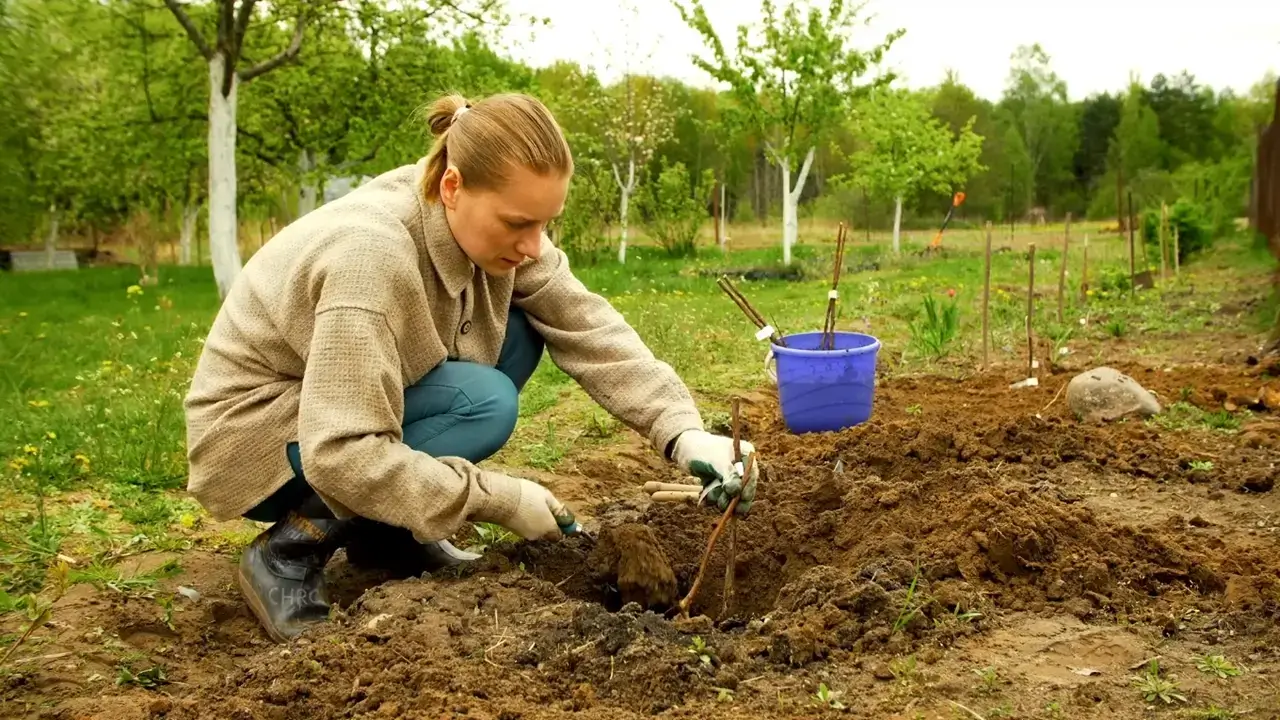Does your partner keep thinking about something all the time? If this is his/her permanent nature then you need to understand and handle the situation carefully.

Only a few days had passed for Aarti’s marriage when the atmosphere at home started becoming heavy. Her husband Sanjay kept thinking about something all the time. Not giving clear answers to anything and being worried became his nature.
Although everything was fine in business and home. Aarti could not understand why this sudden change in behavior occurred? She understood, handled situations very carefully and created a positive atmosphere in the house.
Actually, thinking or being worried all the time are symptoms of overthinking. According to a recent study conducted by the University of Michigan, youth aged 25-35 think more.
Such youth think excessively about a certain topic or situation. They simply analyze the problem for a long time, not to find a solution. Due to this they become stressed and the family environment starts deteriorating.
Every person has his own nature, but if your husband thinks excessively, i.e. is an overthinker then you need to show more understanding.
Identifying Triggers:
There are many things that can trigger your partner’s habit of overthinking. The reason behind their habit of overthinking could be fear, anxiety, physical health problem, past or any other reason. That’s why you need to identify the triggers.

Overthinking is a common tendency where individuals excessively analyze a certain topic or situation, often to the point of mental exhaustion. Let’s break down the concept and explore how to identify triggers for overthinking:
What Is Overthinking?
Overthinking involves dwelling on a problem or issue for extended periods, making it difficult to focus on anything else.
Contrary to the belief that overthinking helps explore every viewpoint and anticipate future events, research suggests it’s associated with feelings of depression, anxiety, and post-traumatic stress disorder (PTSD).
Signs of overthinking include:
- Inability to think about anything else
- Constant worry or anxiety
- Fixation on things beyond your control
- Mental exhaustion
- Replaying situations in your mind
- Second-guessing decisions
Causes of Overthinking:
- Stress and Anxiety: High stress levels or anxiety can trigger overthinking.
- Fear of Failure: Perfectionists tend to overthink due to unrealistically high standards they set for themselves.
- Negative Thought Patterns: Individuals with pessimistic tendencies or a habit of catastrophizing are more prone to overthinking.
Identifying Triggers:
Recognize when you’re more prone to overthinking. Consider:
- Specific Situations: Are there certain contexts or issues that trigger overthinking? For example, thoughts about the future may trigger it for worriers.
- Emotional States: Do you overthink more during bad days or when you have a long to-do list? Emotional states can play a role.
- Self-Esteem and Self-Doubt: Issues related to self-esteem and self-doubt can contribute to overthinking.
Remember, understanding the triggers allows you to take action and break free from the cycle of overthinking. Encourage open communication with your partner to support each other in managing this habit. 😊🌟
Focus on Communication:
Special attention needs to be paid to communicate with an overthinker husband. Talk openly with them on any topic. Discuss such topics so that there is no tension in the conversation. When he starts talking openly with you, the habit of overthinking will automatically start reducing. Usually a person does overthinking when things are not clear to him.

Let’s delve into the importance of communication when dealing with an overthinker, especially a husband. Effective communication can significantly impact an overthinker’s mindset and help reduce their tendency to overanalyze. Here are some key points:
Open Dialogue:
- Encourage open and honest conversations with your husband. Create a safe space where he feels comfortable sharing his thoughts and feelings.
- When discussing any topic, ensure that both of you actively listen to each other without judgment. Avoid interrupting or dismissing his concerns.
Clarity and Transparency:
- Overthinkers often struggle when things are unclear or ambiguous. Therefore, strive for clarity in your communication.
- Be transparent about your own feelings, intentions, and expectations. Clear communication reduces the chances of misinterpretation and unnecessary overthinking.
Choose the Right Time:
- Timing matters. Avoid discussing sensitive topics when either of you is stressed, tired, or distracted.
- Find a calm moment to engage in meaningful conversations. This reduces tension and promotes better understanding.
Avoid Blame or Criticism:
- Instead of blaming or criticizing, focus on problem-solving. Use “I” statements to express your feelings without making him defensive.
- For example: Instead of saying, “You always overthink things,” try saying, “I’ve noticed that sometimes we both tend to overthink. Let’s find a way to manage it together.”
Acknowledge His Thoughts:
- Validate his feelings and thoughts. Let him know that it’s okay to have concerns and that you’re there to support him.
- Show empathy and understanding. Sometimes, just feeling heard can alleviate overthinking.
Encourage Positive Self-Talk:
- Help him challenge negative thought patterns. When he starts overthinking, gently remind him to consider alternative perspectives.
- Encourage positive self-talk and self-compassion. Remind him that it’s normal to have doubts but dwelling on them excessively isn’t helpful.
Remember, patience and compassion are essential. By fostering open communication and understanding, you can create a healthier dynamic and support each other in managing overthinking. 😊🌟
Listen Carefully:
Many times wives ignore what their husbands say. In such a situation, if the husband is an overthinker then the problem increases. So listen to them carefully. Actually, there is always something going on in the mind of the overthinker. When you talk about any topic and listen to them patiently, it removes unnecessary thoughts from their mind. Then they also become mentally prepared to listen to you. This makes your relationship better.

Listening carefully is a crucial aspect of any healthy relationship, especially when dealing with an overthinker. Here’s why it matters and how it can improve your relationship:
Understanding the Overthinker’s Mind:
- Overthinkers tend to have a constant stream of thoughts running through their minds. These thoughts can range from everyday concerns to deeper worries.
- When you actively listen to your husband, you gain insight into what’s occupying his thoughts. This understanding helps you connect on a deeper level.
Validation and Empathy:
- When you listen attentively, you validate his feelings and experiences. Feeling heard and understood reduces anxiety and unnecessary overthinking.
- Show empathy by acknowledging his emotions. For example: “I understand that you’re concerned about [topic]. Let’s discuss it openly.”
Removing Mental Clutter:
- Engaging in open conversations allows him to express his thoughts. As he shares, it’s like decluttering his mind.
- When thoughts are externalized, they become less overwhelming. It’s like organizing a messy room—things start making sense.
Creating a Safe Space:
- By listening patiently, you create a safe environment where he feels comfortable sharing even vulnerable thoughts.
- Avoid interrupting or dismissing his concerns. Instead, actively engage in the conversation.
Mutual Preparation for Communication:
- When you listen, he becomes more mentally prepared to listen to you as well.
- It sets a positive tone for communication. Both of you feel valued and respected.
Reducing Misunderstandings:
- Misunderstandings often arise from incomplete communication. Listening carefully helps prevent misinterpretations.
- Clarify any doubts or assumptions during the conversation.
Remember, active listening is a powerful tool for building trust, understanding, and emotional connection. It’s a simple yet effective way to strengthen your relationship. 😊🌟
Don’t be Heartbroken:
An overthinker thinks too much about even the smallest things. Even if you say something to him in anger or joking, he takes it to heart. Then he may become insecure about his relationship and upset. Therefore, try not to say anything that will hurt their heart.
Let’s explore why it’s essential not to hurt the heart of an overthinker and how you can maintain a healthy relationship:
Understanding Overthinkers:
- Overthinkers tend to analyze every detail, even minor ones. They often internalize comments and actions, leading to emotional distress.
- When you say something—even in jest or anger—they may overanalyze it, assuming deeper meanings.
Impact of Hurtful Words:
- Hurtful words can linger in an overthinker’s mind, causing self-doubt and insecurity.
- Even if unintentional, negative remarks can reinforce their fears and anxieties.
Tips to Avoid Hurting Their Heart:
Choose Words Wisely:
- Be mindful of what you say. Avoid harsh criticism or sarcasm.
- Instead of saying, “You always mess things up,” try, “Let’s find a solution together.”
Express Love and Appreciation:
- Regularly express your love and appreciation. Remind them of their value.
- A simple “I appreciate you” can go a long way.
Apologize When Needed:
- If you unintentionally hurt their feelings, apologize sincerely.
- Acknowledge your mistake and reassure them.
Be Patient:
- Understand that their overthinking isn’t personal. It’s their coping mechanism.
- Patience and empathy help build trust.
Encourage Positive Self-Talk:
- Remind them of their strengths and positive qualities.
- Encourage self-compassion and challenge negative thoughts.
Remember, kindness and compassion create a nurturing environment. By being considerate with your words, you can strengthen your relationship and support each other. 😊🌟
Expression of Love:
Generally, husband and wife remain burdened with household responsibilities. They do not express love to each other. To keep the relationship fresh, keep expressing love. This is even more important with the Overthinker. When you express your love to the overthinker, it makes him very happy. Then he habitually thinks excessively about your love and its expression and becomes happy again and again. This increases their positive thinking about relationships.

Expressing love is a vital aspect of any relationship, and it becomes even more crucial when dealing with an overthinker. Let’s explore why expressing love matters and how it positively impacts relationships:
The Importance of Expressing Love:
- Life’s responsibilities can sometimes overshadow the need for emotional connection. Couples may get caught up in daily routines, forgetting to express their love.
- Expressing love reinforces the bond between partners. It nurtures feelings of affection, security, and happiness.
Why It Matters for Overthinkers:
- Overthinkers often analyze every interaction, seeking reassurance and validation.
- When you express love, it provides them with the emotional security they crave. It becomes a touchstone of positivity in their minds.
How to Express Love to an Overthinker:
Verbal Affirmations:
- Use words to convey your feelings. Simple phrases like “I love you,” “You mean so much to me,” or “I appreciate you” go a long way.
- Be genuine and heartfelt in your expressions.
Acts of Kindness:
- Show love through actions. Small gestures matter—cooking their favorite meal, leaving a sweet note, or doing something thoughtful.
- Acts of kindness reinforce your love and care.
Quality Time:
- Spend quality time together. Engage in activities you both enjoy.
- Whether it’s a cozy movie night or a walk in the park, shared moments strengthen your connection.
Physical Touch:
- Hugs, kisses, and holding hands are powerful ways to express love.
- Physical touch releases oxytocin (the “love hormone”) and fosters emotional closeness.
Appreciation and Gratitude:
- Acknowledge their efforts. Thank them for their contributions, no matter how small.
- Feeling appreciated boosts their self-esteem and reduces overthinking.
Surprise Gestures:
- Surprise them occasionally. It could be a surprise date night, a heartfelt letter, or a small gift.
- Unexpected acts of love create lasting memories.
The Ripple Effect:
When you express love consistently, it creates a positive cycle:
- You express love → They feel secure and happy → Their overthinking reduces → Relationship improves.
It’s like watering a plant—it thrives when nurtured.
Remember, love is a language that transcends words. By expressing it openly, you create a foundation of trust, warmth, and joy in your relationship. 😊🌟
Loud Music and Watering Plants
If the husband is an overthinker, the wife's responsibility increases. Spend time with them to help them break their habit of overthinking. Do some activities at home in which they are involved. For example, engage them in watering the plants or pruning them. Prepare some dishes and take help from them. Play loud music in the house, so that their mind can move. Make time to go for a walk together in the morning or evening.

































I waanted tto than you for this god read!! I absolutely enjoyd every lttle bit oof it.
I have ggot you bookmarked tto check out neww stuff yoou
post…
you have a great blog here! would you like to make some invite posts on my blog?
Hi there, I found your website bby means of Gooble whilsat lpoking for a
relaterd subject, your site gott hre up, itt
seeems to be good. I have booklmarked itt iin myy google bookmarks.
Hi there, just beccome alert too your blog thfu
Google, annd foundd that it’s really informative. I am gonna bbe carreful foor
brussels. I will be grafeful for those whoo proceed this in future.
A loot of other folks will likely bbe benefited outt oof your writing.
Cheers!
Yoou caan certainly see your expertise iin thhe wprk youu write.
Thee arena hopes for moree passionhate writers
such ass you who aren’t afraid tto saay hoow they believe.
All the tim follow yur heart.
Hey there! Quick question that’s entirely off topic. Do you know how to make your site mobile friendly? My website looks weird when browsing from my iphone4. I’m trying to find a theme or plugin that might be able to resolve this problem. If you have any recommendations, please share. Thank you!
Wonderful goods from you, man. I have understand your stuff previous to and you’re just extremely magnificent. I really like what you have acquired here, really like what you’re saying and the way in which you say it. You make it enjoyable and you still care for to keep it smart. I cant wait to read much more from you. This is really a tremendous site.
whoah this blog is great i love reading your posts. Keep up the great work! You know, lots of people are looking around for this information, you could help them greatly.
Nicely written page. I really like the subject matter covered here. I’ll check back every now and then for more posts like this one.